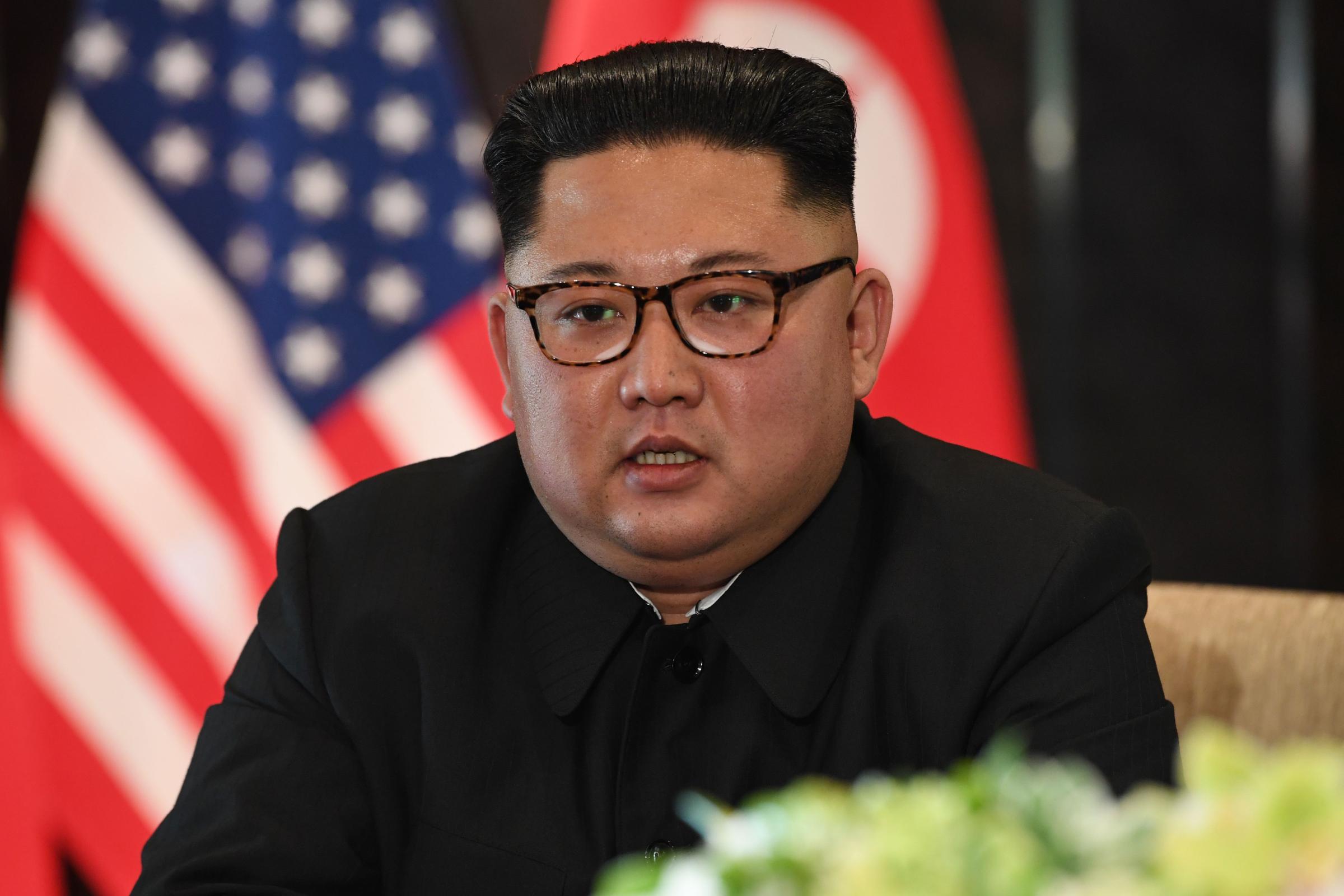Secretary of State Mike Pompeo has reaffirmed the U.S.’s “iron-clad” commitment to its alliance with Japan and South Korea and said that sanctions on North Korea will not be lifted until its complete denuclearization is realized.
Pompeo’s comments Thursday come amid uncertainty over what the U.S. and North Korea’s joint commitment “to work toward complete denuclearization of the Korean Peninsula” means in practice, and doubts over Trump’s tweet that after the June 12 summit “there is no longer a nuclear threat from North Korea.”
“We’re going to get denuclearization,” Pompeo said at a press conference following trilateral talks with South Korea’s foreign minister Kang Kyung-wha and Japan’s foreign minister Tarō Kōno. “Only then will there be relief from the sanctions.”
The Secretary of State also added that Trump’s tweet was made with “eyes wide open.”
North Korean state media on Tuesday said Trump had agreed to “step-by-step and simultaneous action” to achieve denuclearization, South Korea’s Yonhap news agency reports, leading some to believe that sanctions could be lifted in phases.
Despite Pompeo’s insistence that sanctions would hold until denuclearization occurred, he offered few details on how the complex process of complete, verifiable and irreversible denuclearization would be implemented.
Read more: Kim Jong Un Promises ‘Major Change’ After First Ever Summit Between Leaders of U.S. and North Korea
When South Korean President Moon Jae-in met Pompeo early Thursday, he reiterated Trump’s upbeat assessment of the summit, saying that the world had “escaped the threat of nuclear war.” In earlier post-summit remarks, he congratulated Trump and Kim but also cautioned that “this is just a beginning and there may be many difficulties ahead, but we will never go back to the past again and never give up on this bold journey.”

South Korea’s Blue House offered cautious assent to Trump’s controversial statement Wednesday that the U.S. would halt “war games” on the Korean Peninsula, saying the suspension of joint military drills may be necessary to assist in denuclearization talks, according to Yonhap news agency.
Trump had described the drills as costly and “provocative,” the latter a common refrain in Pyongyang, which regards the exercises as a rehearsal for invasion. But South Korea, Japan, and the U.S. have long maintained that the exercises are defensive in nature.
Alexandra Bell, Senior Policy Director at the Center for Arms Control and Non Proliferation tells TIME that while pausing the drills “may, in the end, be the right move” the decision should have been made in consultation with Japan and South Korea. “The United States should never catch it allies off guard, as seems to be the case with President Trump’s announcement,” she says.
Bell adds that Kim Jong Un would be pleased with the outcome of the summit because beyond some unilateral moves, like a potentially superficial shut-down of their nuclear test site, “the North Koreans did not make a lot of concessions to get the meeting they have desired for so long.”
Daniel Pinkston, an East Asia expert at Troy University in South Korea, was scathing in his assessment of Trump halting the drills “without a worthwhile quid pro quo.” Pinkston said the move was “anti-American treachery.”
At Thursday’s joint press conference, South Korea’s Foreign Minister told reporters that she and Pompeo had not discussed the drills “in depth” but “military officials from South Korea and the United States will have to discuss further and coordinate.”
The U.S., Japan, and South Korea continue to say all the right things in official settings, says Adam Mount, a senior defense analyst at the Federation of American Scientists, but ” real fissures are opening between the partners that will endanger the interests of all three countries.”
The apparent lack of consultation on the part of the Trump administration has “offended, alarmed, or alienated allies in ways that have impaired policy on North Korea,” he adds.
On Thursday morning, as Pompeo talked with U.S. allies in Seoul, a South Korean military delegation traveled to the Demilitarized Zone (DMZ) to meet counterparts from the North. The discussions, on how to reduce cross border tensions, would be the first of their kind in more than a decade.
More Must-Reads from TIME
- Caitlin Clark Is TIME's 2024 Athlete of the Year
- Where Trump 2.0 Will Differ From 1.0
- Is Intermittent Fasting Good or Bad for You?
- The 100 Must-Read Books of 2024
- Column: If Optimism Feels Ridiculous Now, Try Hope
- The Future of Climate Action Is Trade Policy
- FX’s Say Nothing Is the Must-Watch Political Thriller of 2024
- Merle Bombardieri Is Helping People Make the Baby Decision
Write to Joseph Hincks / Seoul at joseph.hincks@time.com